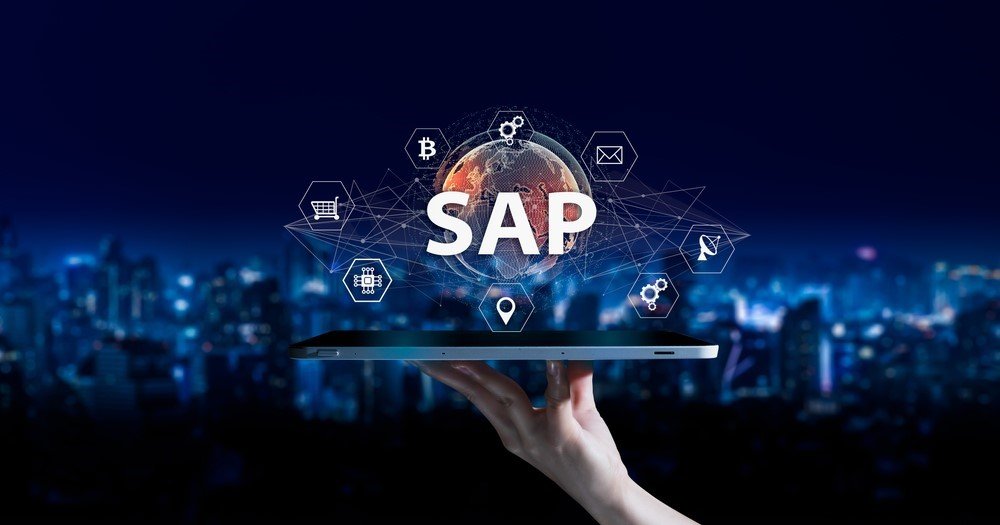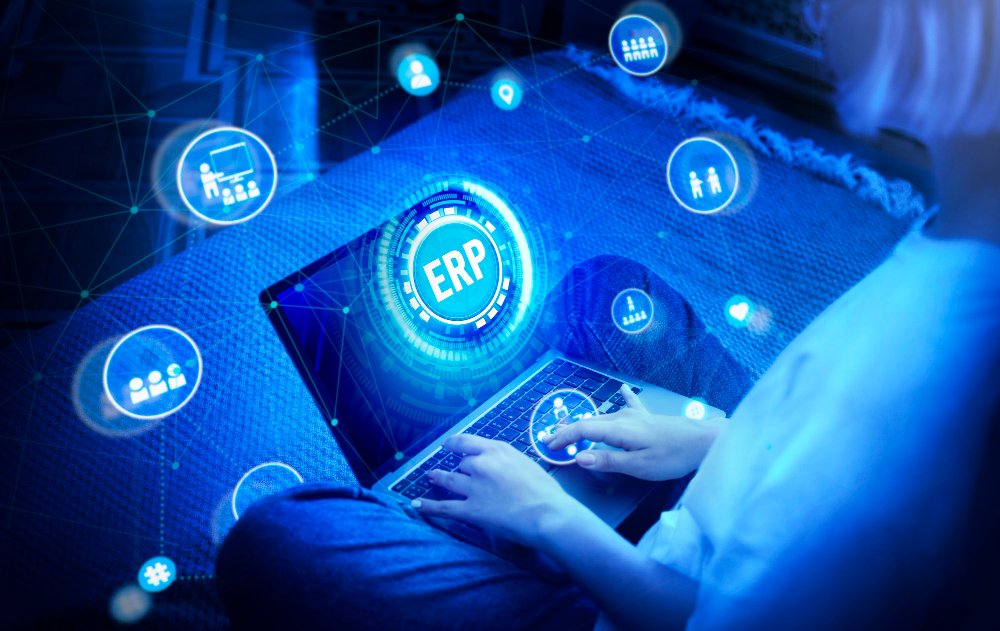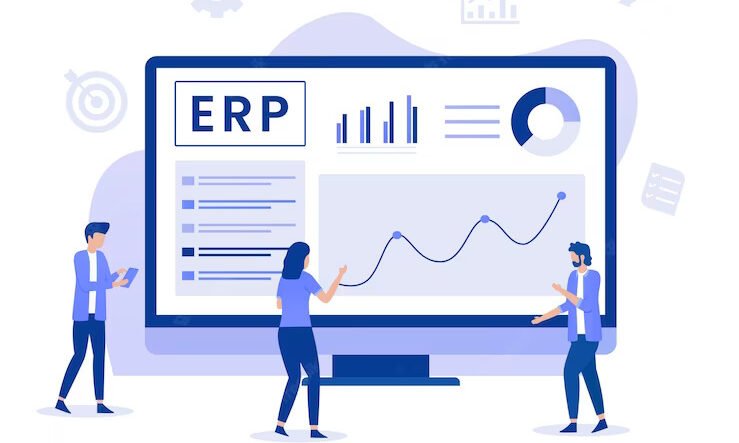How SAP S/4HANA is Revolutionizing Enterprise Resource Planning?
- 1 Future of Enterprise Resource Planning
- 1.1 Intelligent Automation:
- 1.2 Real-Time and Predictive Analytics:
- 1.3 Seamless Integration and Interoperability:
- 1.4 Personalized User Experiences:
- 1.5 Extended Ecosystems and APIs:
- 1.6 Cloud-Based Deployment:
- 1.7 Embracing Emerging Technologies:
- 1.8 Sustainability and ESG Integration:
- 2 The solution is highly personalized and intelligent and uses SAP S/4HANA
- 3 Conclusion
- 3.0.1 Author Bio:
In today’s rapidly evolving business landscape, a timeless saying has gained a fresh resonance: “Cloud: Every business’s path to success.” This adage emphasizes the pivotal role of Cloud ERP systems, specifically the SAP ERP system, in unlocking business potential. Modern enterprises possess the remarkable ability to adopt cloud technologies, enabling them to forge a path toward a prosperous future. In this dynamic reality, the key to future-proofing lies in anticipating the unknown and establishing business practices that drive unmatched efficiency and profitability. This is where agility takes center stage, and embracing Accely’s intelligent SAP S/4HANA solution becomes essential for businesses aiming to thrive.
Future of Enterprise Resource Planning
Here is a future-looking vision for ERP:
Intelligent Automation:
SAP ERP system will increasingly leverage artificial intelligence (AI) and machine learning (ML) to automate routine tasks and optimize business processes. Intelligent automation will enable ERP systems to learn from data, make predictions, and autonomously execute tasks, resulting in improved efficiency and reduced manual effort.
Real-Time and Predictive Analytics:
The analytics capabilities of SAP ERP systems will keep developing, giving real-time insights into business activities. The use of predictive analytics will be crucial since it enables businesses to foresee trends, spot possible problems, and take proactive actions based on data-driven projections.
Seamless Integration and Interoperability:
SAP ERP systems will become more interconnected, seamlessly integrating with various systems, applications, and devices. This integration will enable the flow of data across the organization, facilitating collaboration, and supporting end-to-end business processes.
Personalized User Experiences:
User experience will be prioritized by SAP ERP systems, which will provide customized interfaces catering to unique jobs and preferences. These user interfaces will be simple to use, visually appealing, and available on a variety of devices, facilitating effective interactions between users and the ERP system.
Extended Ecosystems and APIs:
ERP systems will continue to foster open ecosystems with robust APIs, allowing businesses to easily extend and customize their ERP functionalities. This openness will enable organizations to integrate additional specialized solutions, partner applications, and emerging technologies, creating a flexible and tailored ERP environment.
Cloud-Based Deployment:
Cloud adoption will become the standard for ERP systems, providing organizations with scalability, flexibility, and easy access to the latest updates and innovations. Cloud-based ERP deployments will enable seamless collaboration, data sharing, and remote access to critical business information.
Embracing Emerging Technologies:
ERP systems will leverage emerging technologies such as blockchain, the Internet of Things (IoT), augmented reality (AR), and virtual reality (VR) to further enhance business processes. These technologies will enable improved supply chain visibility, enhanced asset management, immersive training experiences, and more.
Sustainability and ESG Integration:
ERP systems will incorporate sustainability and Environmental, Social, and Governance (ESG) considerations into their functionalities. SAP S/4HANA migration can play a crucial role in facilitating the integration of sustainability and ESG considerations into ERP systems. This integration will help organizations track and manage their environmental impact, social responsibility, and governance practices, aligning with evolving societal expectations.
The solution is highly personalized and intelligent and uses SAP S/4HANA
In the dynamic corporate environment, meeting evolving customer expectations can be quite a challenge. Businesses must possess IT systems that offer flexibility to fulfill these expectations. Additionally, quick adaptability to changing business models is essential to maintain a competitive edge. SAP recognizes these roadblocks and aims to assist businesses comprehensively by providing end-to-end, integrated business processes. The goal is to support organizations in delivering seamless customer experiences that cater to the demand for hyper-personalized solutions in the new world. By leveraging SAP’s solutions, businesses can navigate this landscape with agility, ensuring they stay ahead in the market and meet the heightened expectations of their customers. The migration to SAP S/4HANA allows organizations to eliminate data redundancies, streamline data structures, and reduce data footprint. This simplification enhances data management, reporting, and data-driven processes.
Businesses nowadays must think and act holistically. Intelligent production, efficient manufacturing, and similar practices are essential for success as the demand for hyper-personalized products rises. Having a just and sustainable manufacturing and supply chain is also crucial. Additionally, this calls for brand-new customer-facing services and business models, as well as an ERP system that makes these innovations possible. And in a global company setting, this is not a simple process.
Because of the current global volatility, a guiding mechanism should be required. SAP S/4HANA is the steering system in question. It is the market’s most complete, integrated, and intelligent ERP system. The benefit is that we can deploy it anywhere—on-premises, in the cloud, or on a hyper-scale.
Conclusion
S/4HANA by SAP Intelligent ERP system for modern businesses with embedded AI and machine learning that is accessible on-premises, in a public or private cloud, or in a hybrid environment. Utilizing artificial intelligence to help everyone make better decisions, SAP S/4HANA offers next-generation procedures that integrate and coordinate the entire business. It also offers a new end-user experience in terms of how the system itself directs the end user. To truly automate all decision-making processes, SAP definitely makes use of sensor data and artificial intelligence. More importantly, SAP thinks that society and the environment are actually business and technology. And for this reason, ERP has a fair and sustainable future. It aids in addressing the most pressing issue of the day. It aids in managing just and ethical supply chains throughout the whole value and supply chains of all businesses. Therefore, the future of ERP actually adds a third dimension, namely sustainability, in addition to improving a company’s bottom line or top line.
Author Bio:
Eric Smith is an SAP professional with 15+ years of experience in providing consulting for SAP solutions to his clients. With a knack for technology, he loves to write on the latest SAP developments and share his knowledge with the readers.


















